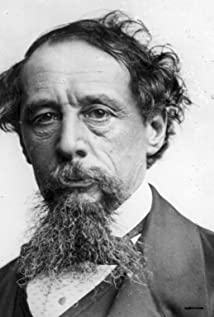Charles Dickens
Charles Dickens' father was a clerk at the Naval Pay Office, and because of this the family had to move from place to place: Plymouth, London, Chatham. It was a large family and despite hard work, his father couldn't earn enough money. In 1823 he was arrested for debt and Charles had to start working in a factory, labeling bottles for six shillings a week. The economy eventually improved and Charles was able to go back to school. After leaving school, he started to work in a solicitor's office. He learned shorthand and started as a reporter working for the Morning Chronicle in courts of law and the House of Commons. In 1836 his first novel was published, "The Pickwick Papers". It was a success and was followed by more novels: "Oliver Twist" (1837), "Nicholas Nickleby" (1838-39) and "Barnaby Rudge" (1841). He traveled to America later that year and aroused the hostility of the American press by supporting the abolitionist (anti-slavery) movement. In 1858 he divorced his wife Catherine, who had borne him ten children. During the 1840s his social criticism became more radical and his comedy more savage: novels like "David Copperfield" (1849-50), "A Tale of Two Cities" (1959) and "Great Expectations" (1860-61) only increased his fame and respect. His last novel, "The Mystery of Edwin Drood", was never completed and was later published posthumously.

